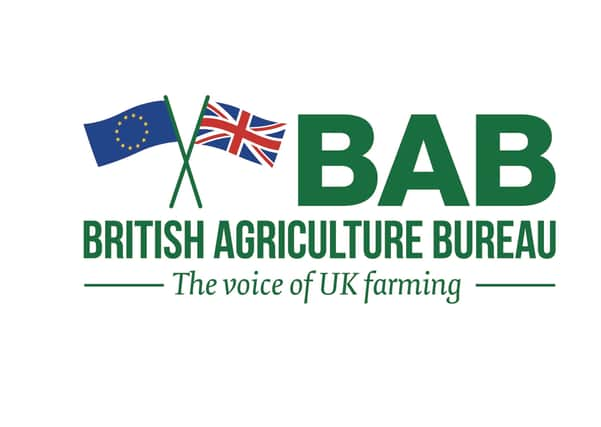BAB continuing lobbying forreciprocal trade of seed potatoes


Disappointingly, but predictably, calls from across the sector to find a workable solution to the impasse were rejected by the Commission in the SCOPAFF meeting last week.
The COM maintain its political position emphasising that it cannot allow a different approach for the UK without dynamic alignment on plant health rules in the UK.
Advertisement
Advertisement
We will continue to work with European contacts to find a model that would be acceptable to both sides to allow reciprocal trade to continue, but doubtless the solution is wrapped up in the bigger discussion on the TCA and NIP.
MEPs overwhelmingly vote to ban cages for farmed animals
The European Parliament adopted a resolution on 10 June urging the Commission to ban cages for farmed animals by 2027.
The resolution, passed by an overwhelming majority (558 votes in favour to 37 against), came in response to a citizens’ initiative, ‘End the Cage Age’, which attracted over 1.4 million signatures. MEPs also stipulated that adequate support for farmers transitioning away from cages needed to form part of the package and called for the same standard to apply to imports.
The vote adds pressure on the Commission, which is expected to officially respond to the petition on 30 June and raises questions about how the EU executive will design such a policy move without causing economic damage to farmers or falling foul of global trade rules.
Advertisement
Advertisement
Following the vote, Copa-Cogeca’s Secretary General Pekka Pesonen said: “This parliamentary resolution shows the limits of the initiative. Farmers are ready to make more investments but not at the cost of their survival…
The European Commission will have to demonstrate how we will avoid double standards in our imports…and how we will keep food prices stable.”
Copa-Cogeca supported the Parliament’s call for a comprehensive and evidence-based impact assessment with scientific and solid agronomic foundations, saying this must occur before a phasing-out date is set.
EU prepares to launch carbon border adjustment mechanism (CBAM)
Advertisement
Advertisement
The Commission is due to publish its CBAM proposal on 14 July as part of the “Fit for 55” climate package. Leaked drafts of the proposal show it will include the setting up of a “CBAM authority”, with the measure being phased in from 2023 and a full implementation from 2026.
The CBAM would apply to steel, iron, cement, fertilisers, aluminium and electricity, according to the documents, with both direct and indirection emissions being included. Importers will need to provide data for imported goods, including “a unique identifier assigned by the CBAM authority,” the type and quantity, country of origin and what calculation has been used.
Importers would be required to buy digital certificates, with each one representing a tonne of carbon dioxide emissions embedded in their imported goods.
The price of the certificates will be linked to the cost of permits in the EU carbon market and based on the average price of auctions of EU carbon permits each week.
Advertisement
Advertisement
The leaked draft is already attracting significant reaction amongst industry participants and it’s quite possible that the proposal will be tweaked prior to adoption by the Commission in July. Major exporting countries such as Brazil, Australia and China are already mobilising against the proposal.
MEPs call for legally
binding biodiversity and forestry targets
The European Parliament approved a report on the EU’s 2030 Biodiversity Strategy last week calling for legally binding measures to protect nature and biodiversity. The MEPs, who voted 515 in favour and 90 against the report, repeated their call to ensure that at least 30% of the EU’s land and sea be protected by 2030, of which at least one-third – including all remaining primary and old-growth forests in the EU – should be given even stricter protection. The Parliament’s report adds pressure on the European Commission to propose concrete measures, including legally binding targets.